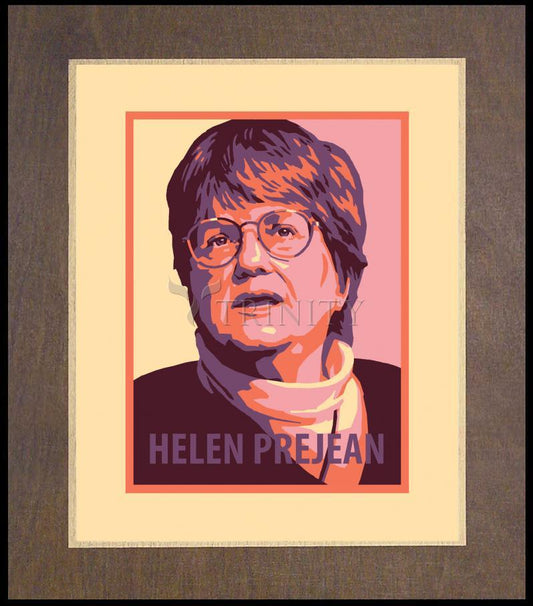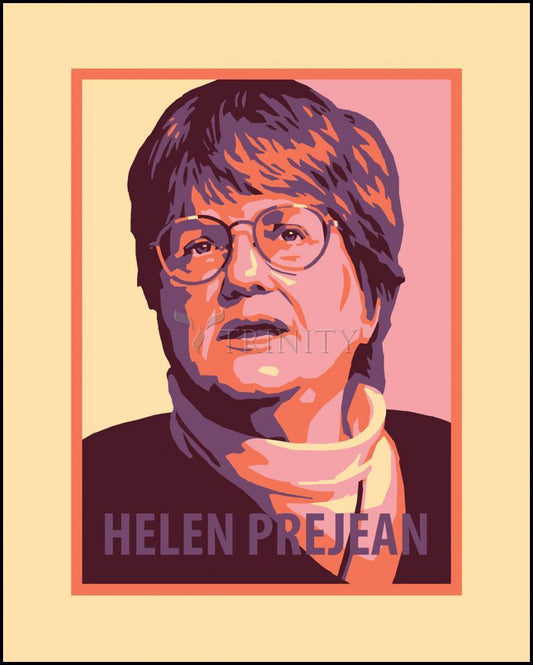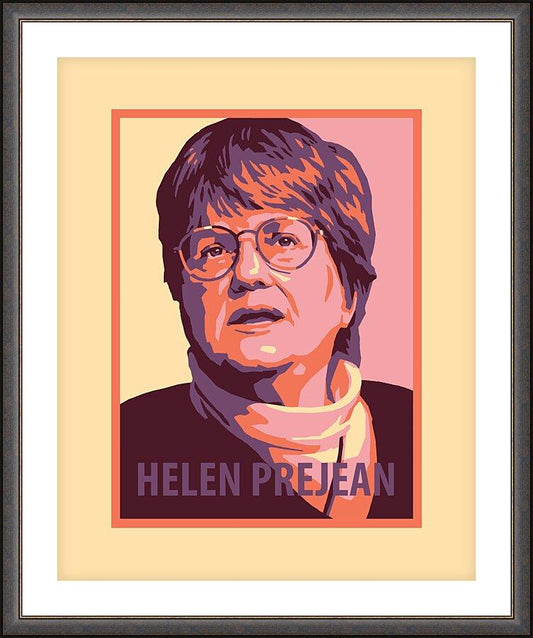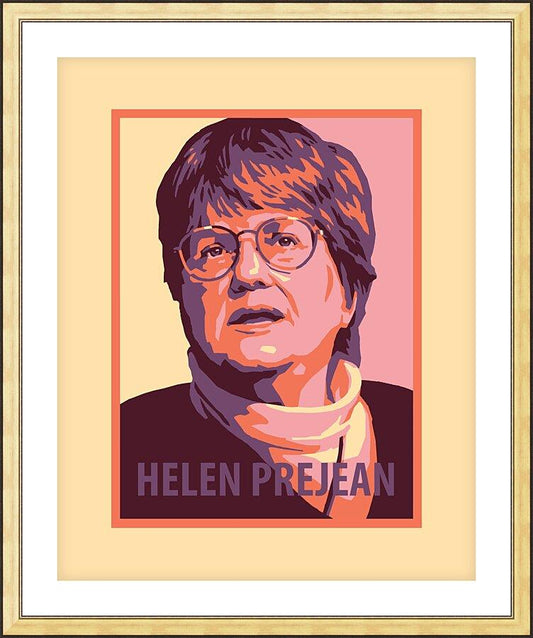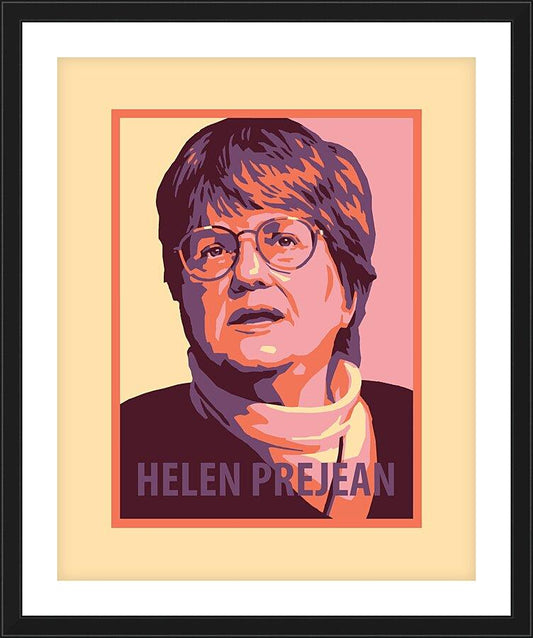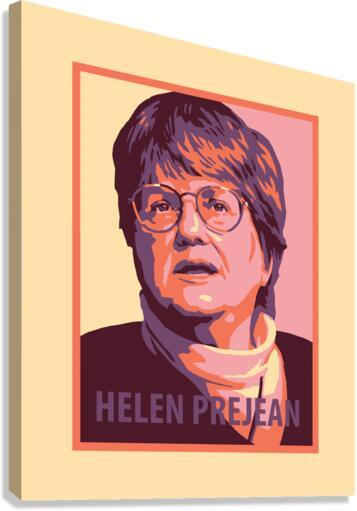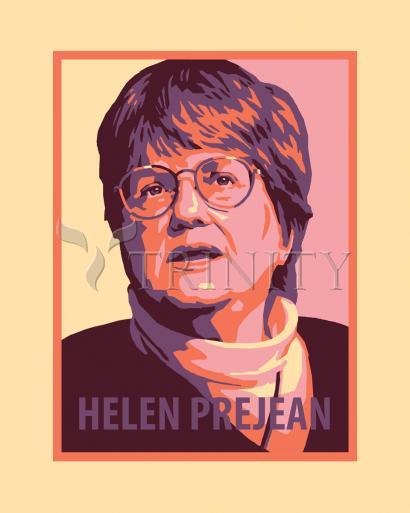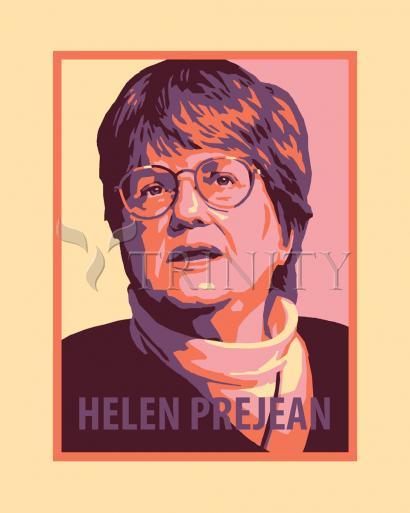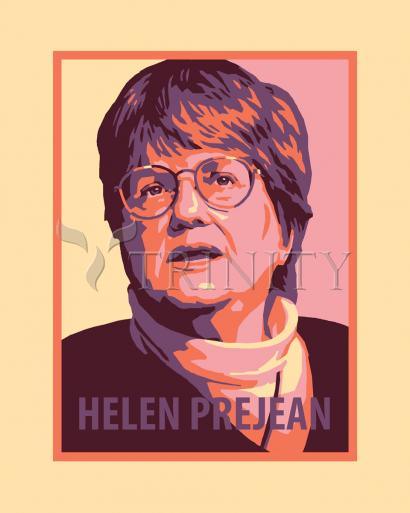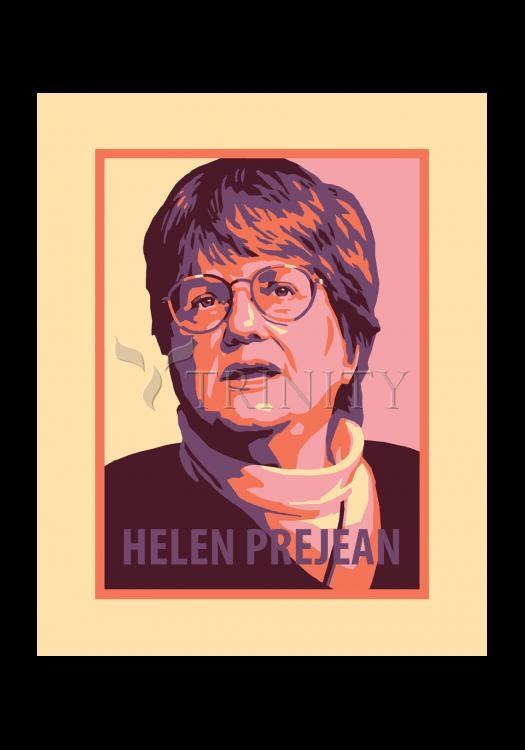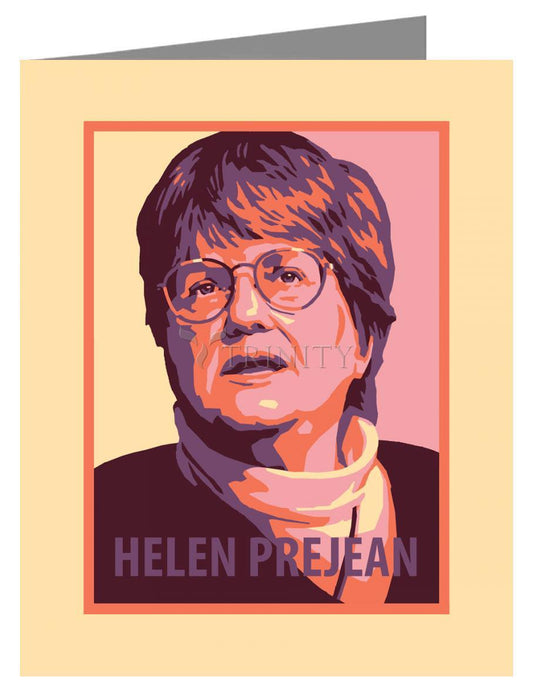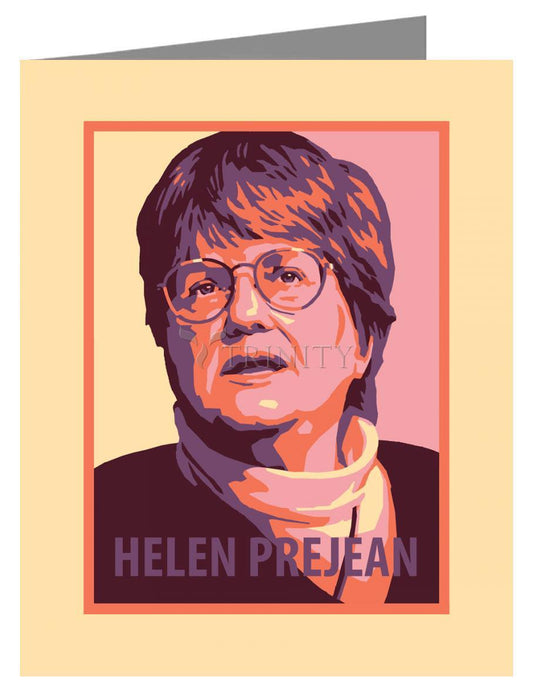Sister Helen Prejean was born on April 21, 1939, in Baton Rouge, Louisiana. She joined the Sisters of St. Joseph of Medaille in 1957 (now known as the Congregation of St. Joseph) and received a B.A. in English and Education from St. Mary's Dominican College, New Orleans in 1962. In 1973, she earned an M.A. in Religious Education from St. Paul's University in Ottawa, Canada. She has been the Religious Education Director at St. Frances Cabrini Parish in New Orleans, the Formation Director for her religious community, and has taught junior and senior high school students.
Sister Helen began her prison ministry in 1981 when she dedicated her life to the poor of New Orleans. While living in the St. Thomas housing project, she became pen pals with Patrick Sonnier, the convicted killer of two teenagers, sentenced to die in the electric chair of Louisiana's Angola State Prison.
Upon Sonnier's request, Sister Helen repeatedly visited him as his spiritual advisor. In doing so, her eyes were opened to the Louisiana execution process. Sister Helen turned her experiences into a book that not only made the 1994 American Library Associates Notable Book List. Dead Man Walking: An Eyewitness Account of the Death Penalty in the United States was number one on the New York Times Best Seller List for 31 weeks. It also was an international best seller and has been translated into ten different languages.
In January 1996, the book was developed into a major motion picture starring Susan Sarandon as Sister Helen and Sean Penn as a death row inmate. Produced by Polygram Pictures, the film was directed and written by Tim Robbins. The movie received four Oscar nominations including Tim Robbins for Best Director, Sean Penn for Best Actor, Susan Sarandon for Best Actress, and Bruce Springsteen's "Dead Man Walking" for Best Song. Susan Sarandon won the award for Best Actress.
The book was the basis for a new opera. It was presented by the San Francisco Opera and premiered in October 2000. The libretto was written by Terrance McNally. Jake Heggie composed the music.
Sister Helen and Dead Man Walking have been the subject of numerous media stories and reviews in the U.S., Canada, Spain, Holland, England, Scotland, France and Australia. She has been featured in the New York Times Magazine, Vogue, Good Housekeeping, the St. Anthony Messenger, the Ligourian, the Chicago Tribune, the Atlanta Constitution, the Times Picayune, the San Francisco Chronicle, the New Orleans Magazine, the Tablet, Sisters Today and numerous other print media.
Her broadcast appearances include 60 Minutes, NBC's Today Show, ABC World News Tonight; the Tom Snyder Show on CNBC, Larry King Live (radio), the Phil Donahue Show, BBC World Service Radio, National Public Radio's Weekend Edition and Fresh Air, an NBC Special on the Death Penalty, the Canadian Broadcast Company Man Alive, the BBC's Everyman, ABC's Prime Times Live, and PBS' Frontline.
Fifteen years after beginning her crusade, the Roman Catholic sister has witnessed five executions in Louisiana and today educates the public about the death penalty by lecturing, organizing and writing. As the founder of "Survive," a victim's advocacy group in New Orleans, she continues to counsel not only inmates on death row, but the families of murder victims, as well.
Sister Helen has served on the board of the National Coalition to Abolish the Death Penalty from 1985"1995, and has served as Chairperson of the Board from 1993"1995. She is also a member of Amnesty International and an honorary member of Murder Victim Families for Reconciliation. She presently is the Honorary Chairperson of Moratorium Campaign, a group gathering signatures for a world-wide moratorium on the death penalty. On December 18, 2000 S. Helen, Paul Hoffman, board member of Amnesty International and Mario Marizziti, representative of The St. Egidio Community in Rome, Italy presented Kofi Annan, Secretary General of the U.N. with 2.5 million signatures from people all over the world who are calling for a moratorium on the death penalty.
Sr. Helen's second book, The Death of Innocents: An Eyewitness Account of Wrongful Executions, was published in December 2004. In it, she tells the story of two men, Dobie Gillis Williams and Joseph O'Dell, whom she accompanied to their executions. She believes both of them were innocent. In The Death of Innocents she takes the reader through all the evidence, including evidence the juries never heard either due to the incompetence of the defense lawyers or the rigid formalities of court procedure. S. Helen examines how flaws inextricably entwined in the death penalty system inevitably lead to innocent people being executed and render the system unworkable.



